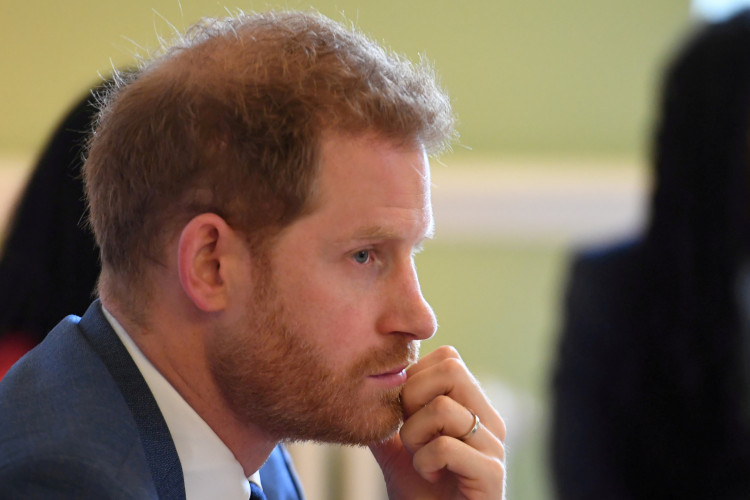Prince Harry's recent solo engagements in Africa, particularly his charity work in Lesotho, have drawn criticism from royal biographer Angela Levin, who claims the Duke of Sussex's independent activities could further strain his relationship with the Royal Family. Levin's comments have sparked debate about Harry's motivations and whether his decision to carry out charity work without the support of his wife, Meghan Markle, might aggravate existing tensions with the monarchy.
The Duke of Sussex, who traveled to Lesotho to work with Sentebale, a charity he co-founded in 2006 with Prince Seeiso of Lesotho, was seen reconnecting with the Basotho people and engaging with vulnerable children. Sentebale supports children affected by HIV/AIDS in Southern Africa. Harry's deep connection to the country dates back to his childhood, and he has visited the region numerous times over the years to oversee the charity's work.
However, according to Levin, Harry's decision to carry out a series of solo engagements without Meghan is a cause for concern. Speaking on GB News, Levin told host Nana Akua that the Duke's trip sends a risky message. "His eight solo engagements in nine days on his own is a very interesting thing," Levin said. "He's gone to all these charities he used to work with as a working royal, and I think it's a way to say, 'I don't need the Royal Family, I can do this on my own, and I can do this much better because everyone still loves me.'"
Levin suggested that Harry's trip could be seen as a defiant move and may provoke a response from the Royal Family, warning that "the Royal Family will come up with something because they can't have this. It's appalling." Levin's remarks have drawn mixed reactions, with some questioning whether it's fair to criticize the Duke's efforts to continue his charitable work independently of the monarchy.
Nana Akua, the GB News host, pushed back on Levin's harsh assessment, pointing out that Harry was in Africa carrying out important charity work. "He was there for a very short time," Levin retorted, adding, "Also, he tells us all how he doesn't like the paparazzi and press, yet he was loving it out there. I don't believe that for a second."
Harry's trip to Lesotho came as a significant moment for the Sentebale charity and for the country itself, marking the 200th anniversary of the nation. In a statement posted on the Sussexes' website, Harry's office highlighted the significance of the visit: "Today marked a significant moment as Prince Harry, The Duke of Sussex - or Mohale, as he's affectionately known by the Basotho people - commenced his trip to Lesotho, warmly welcomed by The King and Queen in a private meeting."
The statement continued, "This occasion not only rekindled cherished connections from his childhood but also celebrated a remarkable milestone: the 200th anniversary of the nation. The Duke holds a special place in his heart for this nation, particularly through his work with Sentebale."
Harry's longstanding commitment to the region and his work with Sentebale has been praised by many. However, critics like Levin argue that his decision to undertake these engagements without the Royal Family's backing signals an attempt to distance himself further from his royal roots. Levin added that Harry's independent activities may be perceived as a challenge to the monarchy, particularly given the ongoing tension between the Sussexes and the Royal Family.
In contrast to Levin's criticism, Harry's supporters point out that his charity work in Southern Africa remains a crucial part of his identity. Sentebale's mission to support vulnerable children in the region has been widely praised, and Harry's continued involvement highlights his deep connection to the cause. Since stepping down as a senior working royal, Harry has emphasized his desire to focus on humanitarian work and causes close to his heart, including mental health and veterans' welfare.
The Duke of Sussex's recent trip also comes amid heightened scrutiny of his public life following the release of his memoir Spare earlier this year and the ongoing media attention surrounding his and Meghan's decision to step back from royal duties. Some commentators have suggested that Harry's independent engagements in Africa could be a way for him to assert his autonomy and continue his charitable efforts on his own terms.
Nevertheless, Levin's warning about the potential consequences of Harry's actions reflects the broader debate about the Sussexes' role in the public eye and their relationship with the Royal Family. As Harry continues to navigate his life outside the monarchy, his solo engagements in Lesotho offer a glimpse into the complexities of balancing his personal passions with the public expectations of his royal heritage.






